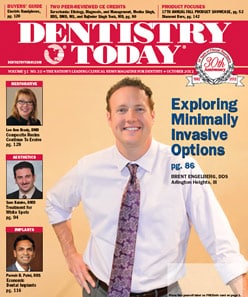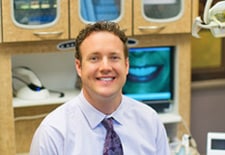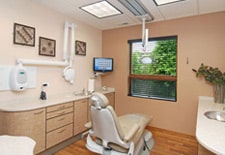 Some people go through their life with the same set of teeth. They might even be lucky enough to never require braces, or anything more than a filling or two. Others end up needing extensive dental work throughout their lives in order to have a fully functioning mouth full of teeth. Whatever the case, knowing the anatomy of your teeth can help you take better care of them, or prepare you for procedures you may need in the future. To aid you in this understanding, Dr. Brent A. Engelberg, your Rolling Meadows dentist, describes the basics of your teeth from the outside, in.
Some people go through their life with the same set of teeth. They might even be lucky enough to never require braces, or anything more than a filling or two. Others end up needing extensive dental work throughout their lives in order to have a fully functioning mouth full of teeth. Whatever the case, knowing the anatomy of your teeth can help you take better care of them, or prepare you for procedures you may need in the future. To aid you in this understanding, Dr. Brent A. Engelberg, your Rolling Meadows dentist, describes the basics of your teeth from the outside, in.
Tooth Enamel
Question: What is the second hardest substance on earth? Answer: Enamel.
The hardest substance on earth diamonds, but enamel is close behind, and is the hardest thing in our bodies. That’s quite a protection system for the inner workings of our teeth. Covering the part of the tooth that is visible above the gumline, your tooth enamel is designed to keep your teeth free of decay. Unfortunately, as strong as enamel is, the protective barrier can be compromised through cracks, chips, wear, and tear. This is why your dentist is always recommending you stay away from sugary or acidic foods, as they can expedite tooth enamel damage.
Dentin
Question: What is the main part of your tooth that you can see with the naked eye? Answer: Dentin.
Dentin is comprised mostly of minerals, and creates the bulk of your teeth. Since enamel is a translucent substance, dentin is responsible for the color of your teeth. Microscopic tubules extend into the root area of teeth, making dentin a portal for nerve sensations when tooth enamel is damaged.
Pulp
Question: What do orange juice and teeth have in common? Answer: Pulp.
Different than the kind found in your morning breakfast beverage, the pulp in the center of your teeth contains connective tissues and cells called odontoblasts. Odontoblasts are responsible for forming new dentin. This serves a reparative function in the case of cavities or injuries to the teeth. Your teeth’s nerves are also important from a sensory standpoint. Transmittal of the feeling of pain is your body’s way of signaling to you that there might be something wrong with your teeth, and you should call your dentist immediately.
Cosmetic Dentistry in Rolling Meadows
If you have chipped, cracked, damaged, or decaying teeth, Dr. Engelberg can help you restore the function and attractiveness of your smile. To schedule an appointment, call our 60061 dentist office at 847-259-8030. We are happy to serve patients in Northbrook, Deerfield, Highland Park, Wilmette, Winnetka, Glencoe, Vernon Hills, Lincolnshire, Libertyville, Skokie, Evanston, Palatine, Schaumburg, Elk Grove Village, Rolling Meadows, Northwest Chicago Suburbs, and Northern Chicago Suburbs.











